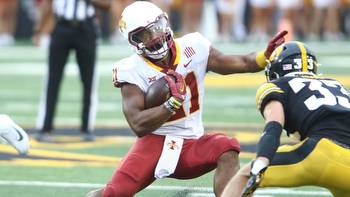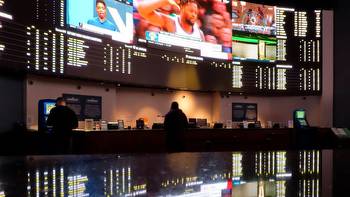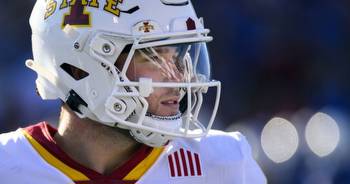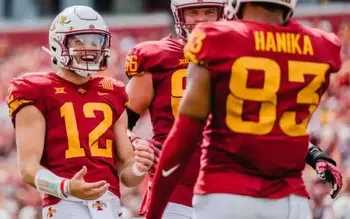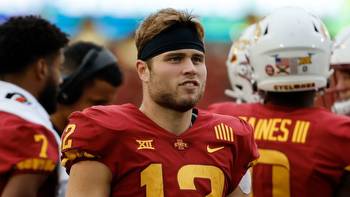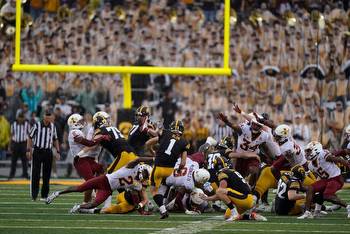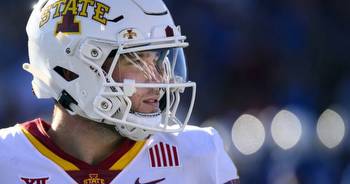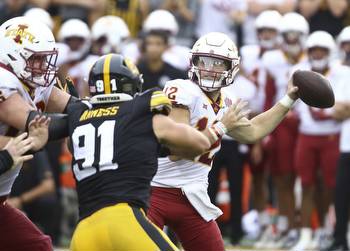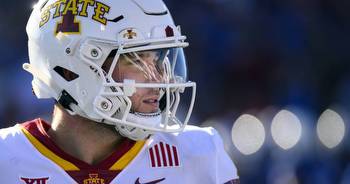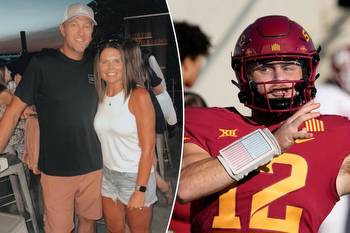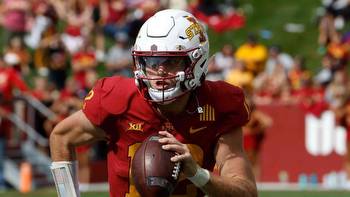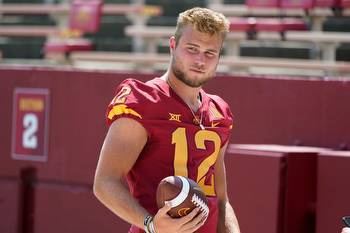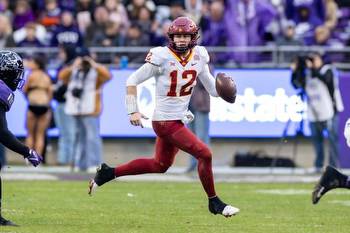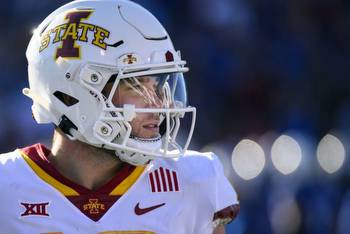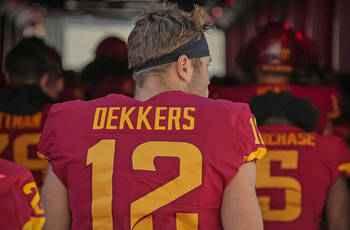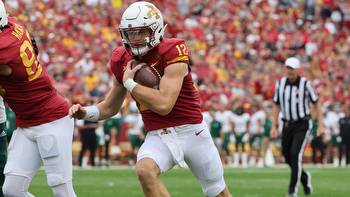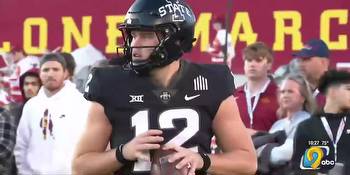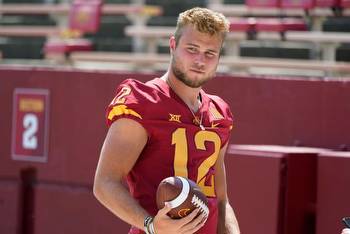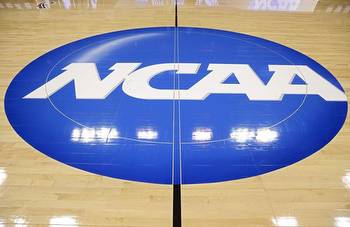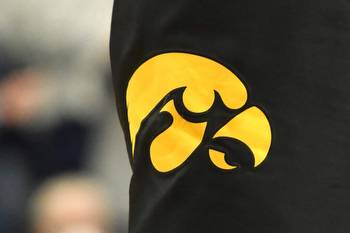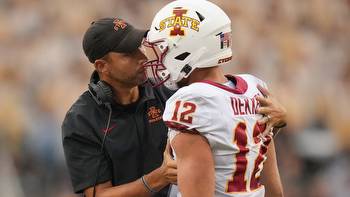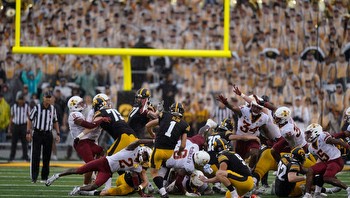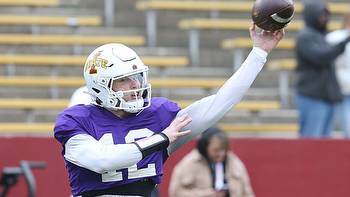In Iowa gambling probe, don't throw the book at athletes
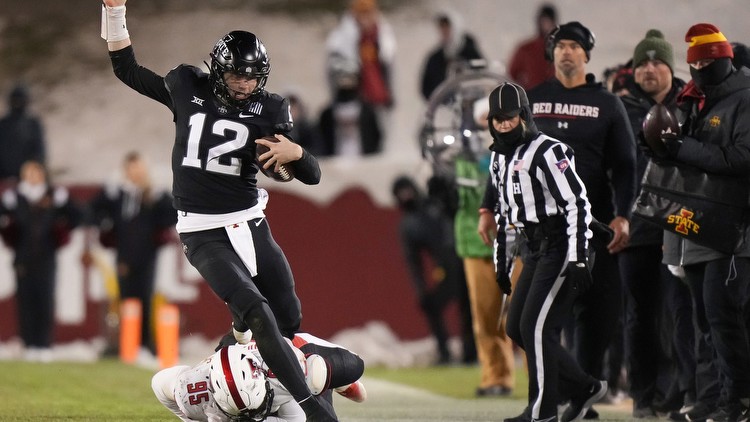
More than three dozen current and former Iowa State University and University of Iowa athletes accused in sports-betting scandals face suspension or criminal charges or both. Observers might feel sympathy or frustration in response.
Here is one reaction, though, that would be hard to take seriously: shock. To put it another way: What did everybody think was going to happen?
The sports gambling industry has mushroomed since a 2018 Supreme Court ruling fired the starting gun for more money to be made off the exploits of professional and amateur athletes alike. Now Americans bet in the neighborhood of $10 billion a month on sports.
Advertisements for the various apps and services facilitating sports betting are unavoidable. Companies are telling us that betting on anything and everything is normal and exciting. What could be more respectable? I downloaded and opened the CaesarsSportsbook app Wednesday morning; had I the desire, I could have — without leaving my desk — dropped $250 on any of an array of table tennis or Asian soccer matches, or sought a big payout by tapping “Mariners, Brewers, Phillies & Marlins All Win on 8/23.”
Universities scrupulously inform their athletes that special rules apply to them. And they should, of course: It is intolerable for athletes to have a gambling stake in the outcome of contests in which they will or might participate, undermining the integrity of the competition. Further, athletes have inside information about their own team, and probably about other sports on campus and even opponents. So a blanket restriction on gambling on college events makes sense, too. The NCAA goes a step further by prohibiting bets on professional leagues for sports in which the college association holds a championship.
We're left with a tug-of-war between athletic department coaches and compliance officers on one side and, on the other, 18- to 22-year-olds being told they must swear off an easy, instant-gratification activity with ubiquitous marketing that more than half their peers have tried, according to an NCAA survey. In hindsight, the ongoing investigations in Iowa feel like an inevitability.
State investigators have not accused anybody in Iowa of trying to fix outcomes. That hasn’t stopped fans from publishing compilations of accused athletes falling down on their way to the end zone to insinuate something worse is happening. Despite the foolish wagers placed on athletes’ own games, the statistics included in criminal complaints make the scenario of trying to throw games seem unlikely. The most prominent person charged, Iowa State football’s 2022 starting quarterback, Hunter Dekkers, wagered $2,799 over 366 bets, prosecutors say, including one game in 2021 in which he backed up Brock Purdy but did not play. A person betting less than $10 a play is more likely to be playing for fun than knowingly putting his career and freedom at risk to illicitly sway games.
Let’s hasten to say again here: The actions described in court documents absolutely violate NCAA policies and Iowa laws. Many of those charged in Iowa are accused of placing bets before they turned 21, using accounts shared with older relatives or friends not under NCAA scrutiny. Given the motivation of the schools to keep their athletes on the straight and narrow, the suspects surely were not ignorant of the rules.
The issue is less whether they broke rules and more whether the various regulatory schemes are realistic. The NCAA has already this year softened the default penalties for violations in certain circumstances. Prohibitions on betting while under 21 seem about as deterring as prohibitions on drinking while under 21. Account and password sharing are common for digital subscriptions; it’s easy to believe some people didn’t think through why a sports-betting app might have stricter rules.
Dekkers’ career (he would have been a junior this fall) could be over. Former Iowa State football player Eyioma Uwazurike will miss out on over $1 million of salary and signing bonus he would have earned as a second-year player with the NFL’s Denver Broncos after he violated that league’s gambling policy.
Some fans have grumbled that Iowa investigators seem to have taken a special interest in app use at the biggest state universities that’s unmatched by police in any other state. If that’s so, it’s unfortunate for the athletes and teams involved. But in the big picture, Iowans are just getting an early realization that it was fantasy to expect college students to resist relentless messaging that betting on sports is easy and fun.
Speaking of temptation: Some officials in Iowa and at the NCAA might think they can best dissuade other athletes nationwide by making an example of these Iowa students, by insisting on tough plea bargains and zapping multiple seasons of eligibility. That would be a mistake. For starters, we suspect the NCAA will find out in a survey it says it’s conducting this fall that these violations are widespread among athletes across the country.
For Iowa's criminal justice system, the better course would be recognizing that what’s happened was foreseeable and imposing penalties measured in dollars or probation, not prison time.
The NCAA should go back to the drawing board. We suggest as a starting premise: Other than games involving an athlete's own team or school, penalties should amount to games suspended. Even then, barring evidence of trying to sway a contest's outcome, a year's suspension for a teen or young-20-something seems more reasonable than a career lost.
— Lucas Grundmeier, on behalf of the Register editorial board
This editorial is the opinion of the Des Moines Register's editorial board: Carol Hunter, executive editor; Lucas Grundmeier, opinion editor; and Richard Doak and Rox Laird, editorial board members.
our free newsletter, follow us on Facebook or visit us at DesMoinesRegister.com/opinion. Respond to any opinion by submitting a Letter to the Editor at DesMoinesRegister.com/letters.

